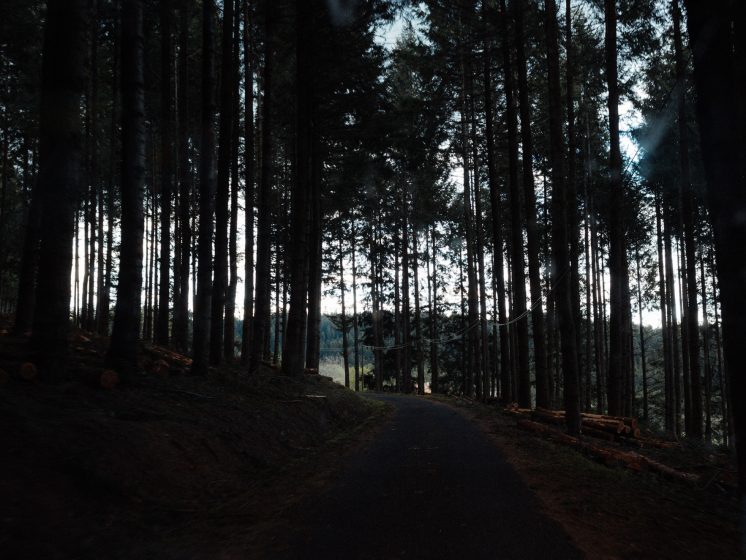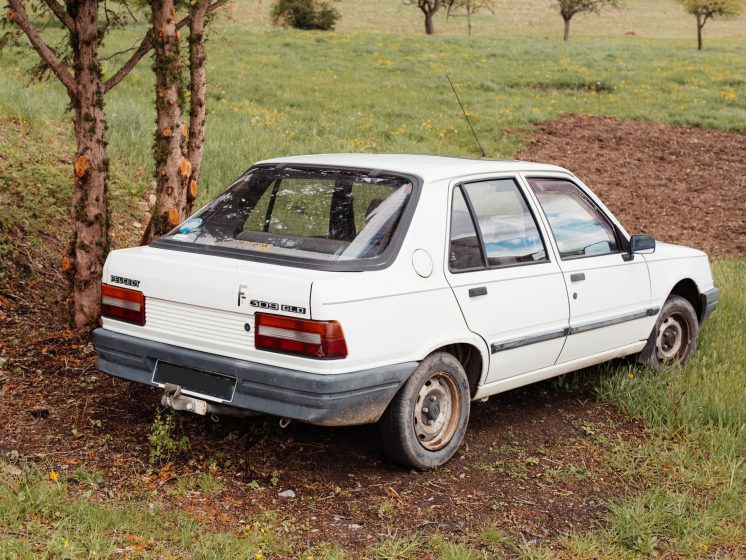The detour isn’t just an escape; it’s a way of embodying the world.
In a world where every route is optimized, where algorithms predict our movements, and speed becomes an unassailable norm, the detour stands out as an act of resistance. It is the assertion of reclaimed freedom, a refusal of systematic efficiency that reduces our experience of the world to a digital sequence of endpoints. To veer off course is to break free from imposed itineraries, to restore time and space to their full density, their mystery, their ability to surprise.
The Detour as an act of resistance
Unbeknownst to us, we live under the reign of the Veloziferisch, a term coined by Goethe to describe the insidious alliance between speed (Velocitas) and the obsession with control (Lucifer). This world, structuring its trajectories around time-saving, tends to make sensory experience unavailable, distancing us from a more intimate connection with our environment. German sociologist Hartmut Rosa, who introduced the concept of resonance, frames it this way: “Vitality, contact, and real experience are born from encounters with the unavailable”. The detour, in its imperfect path, creates friction where the traveler can once again be surprised by a landscape, a light, a face.
The detour is also a political stance. It disrupts the logic of optimization and instant consumption. It challenges the overvaluation of performance. Ivan Illich, in his critiques of interfaces, noted that “the eye becomes dependent on the interface rather than the imagination”. By rejecting the tyranny of algorithms, the detour reclaims direct perception of the world and the critical practice of lived experience: trusting what we’ve encountered firsthand, through our own sensitivity and background. The detour offers a new relationship with speed and destination, emphasizing the need for ecological and local travel—very concretely, the freedom to choose where to stop and what to consume, to attune oneself to the seasons and the land. What’s the point of crossing a natural region if not to taste the foods produced there? Why stop somewhere and spend money if it doesn’t benefit someone who deserves it by social and environmental standards? On the most direct route—often the highway—you stop at rest areas and end up feeding multinationals.
Affected by gamification, the travel industry works to strip travelers of their freedom of movement, pushing them to consume more. Apps like Waze turn driving into a series of challenges: avatars, goals, rewards. Behind this apparent playfulness lies a chilling reality: hyper-controlled routes, the invisibilization of secondary roads, submission to predictive models, and the erasure of a car journey’s ecological consequences. Freud once said: “The opposite of play is not seriousness; it’s reality”. The detour, in this sense, is a form of play, an escape route in a system where everything feels locked down. Allowing for the unexpected, following a back road is a way to reclaim your own travel story.
For me, I understood the importance of detours when thinking about “la petite route” of my childhood—a quiet road cutting through the Beauce to connect Paris, where I live, to the Touraine, where my family home is. Once lively, lined with villages and shops, this little road has vanished—not from the real world but from GPS apps that suggest other, more direct, more expensive, faster, and therefore more polluting routes. Put another way, la petite route disappeared through its invisibility in the navigation apps I used because I let my guard down and got tricked by the cult of performance (always faster!), which I now realize benefits companies far removed from my political beliefs (highway operators, multinational oil suppliers, tech giants…). The erasure of la petite route reflects a broader phenomenon: the loss of a network of secondary roads, those arteries of chance that reveal the unexpected, and with them, the people who inhabit them—farmers, breeders, artisans…
The Poetics of the Detour: The aesthetics of wandering
The detour is more than just a deviation; it’s an aesthetic experience. It turns the road into a playground, a canvas where the traveler becomes both artist and master of their destiny. Beauty isn’t measured by efficiency—it resides in the unexpected curve, the lone tree on a ridge, the house at the field’s edge, the moment when time feels suspended. I often think of the Argentine spatialist artist Lucio Fontana, who said: “I make a cut, and infinity passes through”. Taking a detour is like slicing through the map with a blade, living a poetic, multidimensional geography. Likewise, the detour is a breach in the space-time of hypermodernity. A journey freed from the algorithms’ grip, which imposes control over information and, ultimately, uniformity in practices and tastes.

The detour is a collection of intuitive choices or, when traveling with a group or family, a collective exercise where each stop is decided on a whim, reconnecting with the art of improvisation and collaboration. I remember a trip with my two daughters and my partner, from the Lot region, south of the Auvergne mountains, to Savoie in the heart of the Alps. We decided to challenge ourselves by ditching smartphones for the five-hour drive: no GPS, no Spotify, no internet to look up rest stops. The trade-off (one of my daughters is a teenager—you don’t take away a teen’s phone without offering something in return) was to find a good pastry for an afternoon snack. All day, we chose to turn right or left based on how appealing the road seemed, using only a paper map to guide our general direction. We stopped in the village of Saint-Bonnet-le-Froid because I remembered a famous chef had opened a bakery there. My daughters ordered chocolate éclairs and an apple turnover. When we arrived, several things became clear: we got along better on this trip than we ever had, we didn’t take much longer than the GPS would’ve predicted—35 minutes more, if I recall correctly—we spent MUCH less money because we avoided highways (and polluted less as a result), and we discovered one of the best bakeries in the world.
The Detour: An erotic relationship with the world
The detour isn’t just an escape; it’s a way of embodying the world. Philosopher Herbert Marcuse spoke of an “erotic relationship with the world”—a physical, sensory engagement that invites active discovery. Like in love, excitement comes from intermittence, the appearing and disappearing of the landscape. In this sense, Roland Barthes wrote: “Isn’t the most erotic part of the body where the clothing gapes”? The detour is that opening in the fabric of travel. It reveals ignored territories, instills a constant desire for movement. This re-enchantment could be the key to a successful political ecology based on empowering the traveler. Reinventing our relationship with time and space means embracing the detour. It’s an invitation to slowness, to the imperfection of wandering. Once you’ve left the beaten path, you start seeking secret routes—you leave the car behind, take up biking or hiking, oscillating between wandering and destination to reinvent your connection with nature.

To veer off course is to resist. It’s choosing the curve over the straight line, the tremor over precision. In that oscillation may lie the only true way to travel.
Victor Coutard
Paris
About the Writer:
Victor Coutard
Victor Coutard is a writer, journalist, and food critic. In 2025, he created the How to Get Lost in France newsletter on Substack. His work seeks to highlight creative freedom, the quality of raw materials, the pursuit of efficiency, a deep connection to time, and the expertise of artisans and producers.


